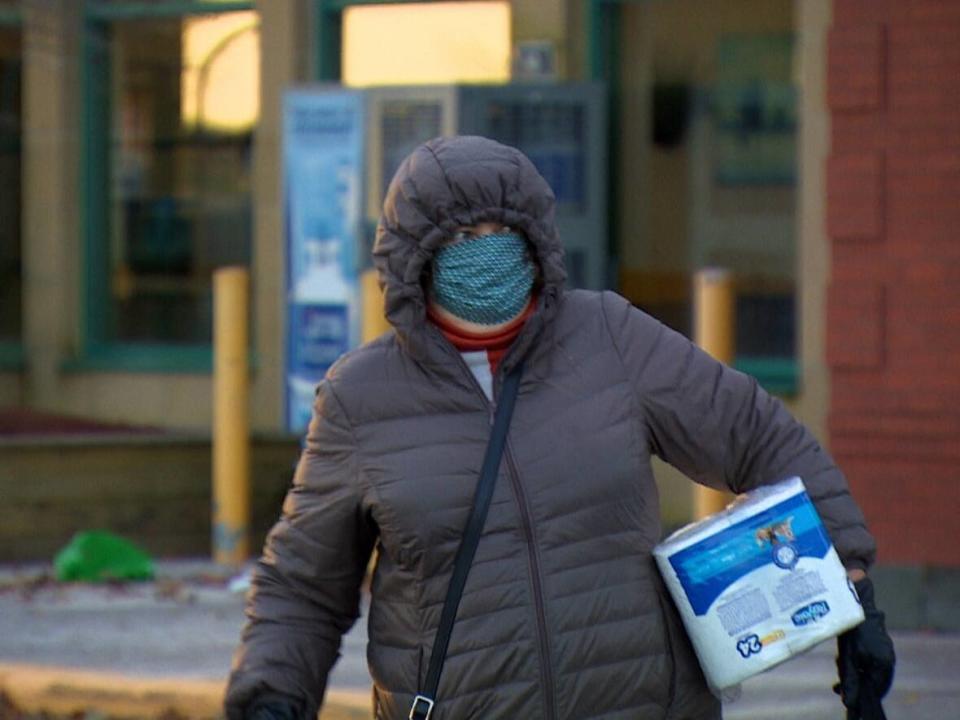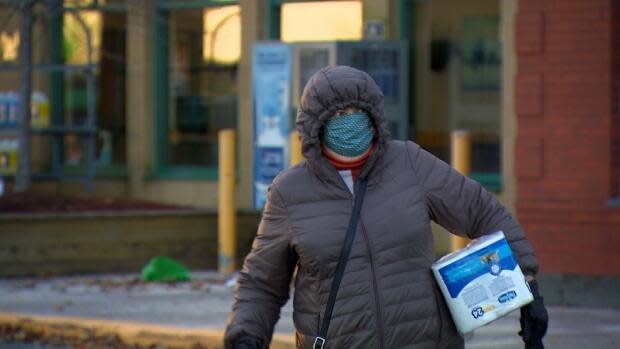3 more people in hospital due to COVID-19, N.L. to stay in Alert Level 4 at least another week


Three more people in Newfoundland and Labrador are in hospital due to COVID-19, raising the current number of hospitalizations to 15 — one short of the provincial record of 16, set Oct. 7.
The hospitalizations were announced Monday, the same day the Health Department announced the province will stay in Alert Level 4 for at least another week.
Health Minister John Haggie said the decision to remain in Alert Level 4 was based on the current epidemiology of the province. Another reassessment and update is scheduled for Jan. 24.
At a briefing after the announcement, Haggie noted the province has the lowest COVID-19 hospitalization rate in Canada, thanks in large part to a successful vaccination campaign.
"This has literally changed the face of the risk of hospitalization from Omicron, said Haggie. "That number is as low as it is thanks to everybody's hard work."
Many people who test positive for the virus are able to recover at home because of the vaccine's protection from severe illness, said the health minister. A small group of people in hospital are vaccinated, but Haggie said he couldn't give a breakdown because of privacy concerns.
Haggie added there are 826 health-care workers in isolation.
The government reported 239 new cases of COVID-19 Monday, but Public Health has restricted who gets tested for the virus and is struggling to keep up with processing the tests it does administer, making the daily case count less reliable as an indicator of COVID-19's spread.
Weighed against 416 recoveries, the province's known active caseload has dropped to 5,325.
The move to tighten public health restrictions came in early January as the coronavirus variant Omicron swept across the country and cases started spiking in Newfoundland and Labrador. When the move to Alert Level 4 was announced — on Jan. 3, taking effect the next day — the provincial government said it would reassess the decision two weeks later.
Watch Monday's briefing here:
In the days following the holiday season and throughout most of January, the province has seen record daily cases reported, along with more deaths and hospitalizations.
With hospitalizations currently lower than the projected peak of between 20 and 30, Haggie said the province continues to walk a line of limiting spread while considering reopening some medical services in the coming days and weeks.
"As the opportunity presents itself, we're ready to open up to more planned services," he said.
Eastern Health announced Monday it will be maintain changes to outpatient lab services like blood collection for the rest of the week, operating only by appointment or through urgent or emergency services. Booked appointments will proceed as scheduled.
Alert levels and school openings aren't linked: Haggie
Haggie said getting all students and teachers back into the province's classrooms safely is more of a priority that lowering the alert level.
"I think there will be a move to do that first. And it may be given the epidemiology that we take it in a very slow and steady pace," he said. "So in terms of opening up to other things, that might be something we do after schools."
Students are tentatively scheduled to return to in-class learning on Jan. 24, with a final decision on returning that day to be made on Wednesday.

Haggie said officials are watching student vaccination rates — about 73 per cent of children ages five to 11 are now partially vaccinated against COVID-19, he said — and closely monitoring booster vaccination rate in teachers and school staff.
But while a return to school is a priority, Haggie said it isn't the sole reason the province's alert level is staying in place.
"Alert levels, and school opening and closing, are not linked," he said. "The alert levels below Level 5 never actually mandated school closure. That leaves the option of slow and incremental progress."
N.L. will need 1 million rapid tests per month: Haggie
Haggie also dispelled the idea the province stockpiles the testing kits at "some warehouse, like in the movie Indiana Jones."
Although the province keeps a small batch available in the event of an outbreak, Haggie said the province has already distributed more than 335,000 test kits to schools, long-term care homes and people arriving at points of entry among other areas.
Haggie said the province will likely need that many tests just for its plan for returning to in-class instruction, which gives every student, teacher and school staff member in the province five rapid tests.
"We're going to be in the process of burning through around a million kits a month," he said.
The province is expected to receive 500,000 independently sourced rapid tests by the end of next week, but Haggie said officials hadn't received any of the federal government's 140 million secured rapid tests as of Monday.
Haggie said the province is also preparing to receive an antiviral therapeutic treatment approved by Health Canada Monday, estimating the province will receive 1.4 per cent of the national share due based on the province's population.
Its use will be a clinical decision by a health professional in individual cases, said Haggie.

 Yahoo Sports
Yahoo Sports 